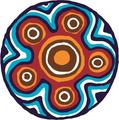Year 7 & 8 Term 1 Overview

Year 7 - Term 1 curriculum
English: In Term 1, the Year 7 focus in English will revolve around the following guiding question; how can I use my knowledge as a reader to become a better writer? Within this unit students will demonstrate understanding of how the choice of language features, images and vocabulary affects meaning. They will explore and discuss issues and ideas from a variety of sources, analysing supporting evidence and implied meaning. They will be required to select specific details from texts and develop their own response, recognising that texts reflect different viewpoints. Through weekly literacy blocks, students will participate in Literature Circle where they will collaborate with their peers to construct and share knowledge of texts to aid collective understanding and growth.
Humanities: In Term 1 students will explore Medieval Europe. This stimulus will be used to unpack a range of new vocabulary and concepts, such as feudal society, inequality, privilege and wealth and control. This will provide our students with a deeper understanding of the significant social, cultural, economic, environmental and political changes that have led to our current way of life and society. Across the term students will be applying their historical knowledge to the concepts of continuity, change and cause and effect
Health: In Term 1 students will begin unpacking and exploring the notion of mental health. Students will identify and explain how mental health can be strengthened at an individual and community level. Students will explore how change and transitions are a normal part of growing older and its relationship to mental health. Students will identify the strategies that individuals who experience change or challenge can undertake to enhance their wellbeing.
Maths: Term 1 of Year 7 Mathematics begins with a focus on fractions, in particular, a focus on the skills of comparing, ordering and operating with fractions. Upon completion, students will be able to understand the concept of equivalence and represent both fractions and mixed fractions on a number line. Building on the skills and concepts of the previous unit, students will move into using ratios, percentages and fractions in context. This will require students to be able to connect percentages, decimals and fractions and carry out simple conversions. Using this knowledge, students will recognise and solve simple ratio problems. Later in the term, students will explore and apply associative, communicative and distributive laws to assist with mental and written computation. To conclude the term, students will use all their fractional knowledge to operate with decimals in the context of 3D shapes.
Science: This term, students have begun to investigate the Law of Conservation of energy and how this relates to forces and gravity. Our guiding question for students to investigate is: With contemporary, global scientific understanding, we are well placed to design innovative solutions for a sustainable future. They will explore how water is and can be used to create renewable Tidal energy/power and Hydropower. As well as the ability to explain how gravity, force and motion are interconnected on Earth. Students will understand the scientific procedure of conducting experiments, including the construction of a clear aim and hypothesis. They will build their capacity to take accurate notes that include summaries, analysis and communicating findings using scientific language, graphical displays and simple word equations. Students will design investigations from questions and wonderings and make predictions based on known facts. They will access Education Perfect, an online resource offered by the education department, to support development of scientific content knowledge.
The Technologies: This term in the technologies students will be consolidating knowledge from both mathematics and science, whilst also applying different skills and concepts in the digital and design medium. In digital technology students will be exploring collaborative apps, specifically google sheets, where students will source primary and secondary information and engage in data representation and interpretation. In design technology students will be developing an understanding of how to engage in design thinking and will be applying the concepts of energy production to design sustainable solutions through a variety of hands-on learning tasks.
Year 8 - Term 1 curriculum
English: During Term 1 English blocks, Year 8 students will be exploring a variety of narrative texts such as fantasy, dreamtime and biographical. Through this analysis, students will be discussing how different structures are influenced by the selection of language, text purpose and intended audiences. Through collaborative lit circle discussions, students will explain how language features, images and vocabulary are used to represent different ideas and issues in texts. Students will then apply this knowledge of text structure and features in their own writing where they will be creating their own narratives.
Humanities: In Term 1, students will continue to explore the unit concept of ‘learning about the past enables us to make critical decisions in the future.’ This conceptual understanding will be applied to Ancient Rome where students will explore the following:
- Patterns and changes in society and way of life in Ancient Rome
- Cause and effect of changes in society
- Cause and effect of beliefs, values and practices
- Motives and actions of significant groups and individuals (I.e) colonisation, spreading beliefs and religion
- Significance behind conserving remains and heritage of the past
Health: During Health in Term 1, Year 8 students will be recapping some of the concepts and content that was covered during their first year of secondary school. This is done to consolidate base knowledge before applying this knowledge to more complex scenarios. The content that will be covered in this recap is as follows:
- Week 1 - 3 Mental Health and Me
- Week 4-6 Relationships: you, me, us
- Week 7-9 Digital Online Safety
Maths: This term in Maths, students will be exploring data representation and interpretation. Students will explore how different sampling methods can be used to make assertions about a population with varying levels of confidence. Students will observe how outliers affect the mean and median. Following this, students will move into a numbers and operating unit. Throughout this unit students will deepen their understanding of rational and irrational numbers. They will consolidate their skills of estimating within a financial maths context. Students will also observe and calculate percentage increases and decreases, profit and loss and explore the index laws. To round out the term, the year eights will revisit algebra and deepen their understanding of distributive law, factorising algebraic expressions and simplifying algebraic expressions.
Science: This term, students are revisiting a variety of concepts from last year including the Law of Conservation of energy and how this relates to forces and gravity. Our guiding question for students to investigate is: With contemporary, global scientific understanding, we are well placed to design innovative solutions for a sustainable future. They will explore wind power and geothermal power and how these resources can be utilised to design sustainable solutions. Students will understand the scientific procedure of conducting experiments, including the construction of a clear aim and hypothesis. They will build their capacity to take accurate notes that include summaries, analysis and communicating findings using scientific language, graphical displays and simple word equations. Students will design investigations from questions and wonderings and make predictions based on known facts. They will access Education Perfect, an online resource offered by the education department, to support development of scientific content knowledge.
The Technologies: This term in the technologies students will be consolidating knowledge from both mathematics and science, whilst also applying different skills and concepts in the digital and design medium. In digital technology students will be exploring collaborative apps, specifically google sheets, where students will source primary and secondary information and engage in data representation and interpretation. In design technology students will be developing an understanding of how to engage in design thinking and will be applying the concepts of energy production to design sustainable solutions through a variety of hands-on learning tasks.
